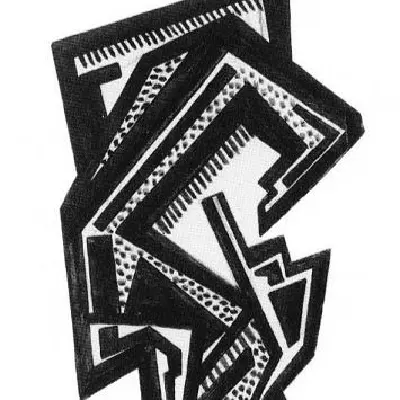
The Empyrean Path
E
13 episodes Last Updated: Jun 15, 23
Podcast on literature, art and philosophy by Hyperidean Press.
IG: @empyreanpath
www.hyperideanpress.com
Episodes
Jun 15, 2023
Episode 13 - Fear of Kathy Acker w/ Jack Skelley
Writer Jack Skelley joins Lydia to talk about the new edition of his cult classic experimental novel 'Fear of Katchy Acker', published in June 2023 by Semiotext(e)
Apr 19, 2023
Episode 12 - Confetti w/ Emmalea Russo
Emmalea Russo joins new host and Hyperidean editor Lydia Sviatoslavsky to discuss the origins of her sublime collection of poems 'Confetti', her astrology practice, and the divine madness of Dora Maar.
'Of smoke and snow' by Elizabeth Huey (Copyright,2015)
Nov 02, 2022
Episode 11 - Zone by Matthias Enard
Udith Dematagoda read's from Matthias Enard's Zone (Fitzcarraldo, 2014). A feverish masterpiece of contemporary modernist fiction on war, violence and the bloodsoaked history of the Mediterranean.
Jul 09, 2022
Episode 10 - Inner Life w/ Paul Dalla Rosa
Australian writer Paul Dalla Rosa joins Udith to talk about his new short story collection 'An Exciting and Vivid Inner Life', technology and alienation, and the philosophy of Byung-Chul Han.
Jun 06, 2022
Episode 9 - The Enormous Room by E.E Cummings
Kyle Dunn reads from 'The Enormous Room' (1922) by E.E Cummings, a novel based on the author's experience of being imprisoned in France during World War I.
Mar 24, 2022
Episode 8 - America by Jean Baudrillard
Emmalea Russo reads from Jean Baudrillard's 'America', and discusses its realtion to Michangelo Antonioni's film Zabriskie Point, and how they have both influenced her own writing.
Feb 17, 2022
Episode 7 - Transcendence w/ Rob Doyle
Udith Dematagoda is joined by Irish novelist Rob Doyle to discuss the topic of Transcendence, featuring the Tibetan Book of the Dead, esoteric Buddhism, Schopenhauer, Nietzsche, personal ideas of hell, his current residency in Singapore, Julius Evola, Emil Cioran, the Kali Yuga and Joe Rogan.
Canadian writer Camilla Grudova joins us to discuss her forthcoming novel 'Children of Paradise', based on her experience of working in a cinema, and two films which she's been thinking about recently; '400 Blows' by Francois Truffaut, and 'Liquorice Pizza' by Paul Thomas Anderson. Also featuring the disappeared charms of her hometown Toronto, The Sopranos, and the possible end of moral obviousness in art and literature.
Udith Dematagoda reads a poisonous letter by the French writer Pierre Drieu La Rochelle to his late friend the Dadaist poet Jacques Rigaut, who had recently killed himself. Rigaut's suicide would serve as the inspiration for Drieu's most famous novel 'Le Feu Follet' (Will O' the Wisp, 1931).
Dec 19, 2021
Episode 4 - Transgression w/ Adam Lehrer
This week we discuss the theme of Transgression with writer and critic Adam Lehrer - taking in the work of George Bataille, Nick Land, Foucault, the films of Gaspar Noé, and the dawning impossibility of a truly transgressive art within contemporary culture.